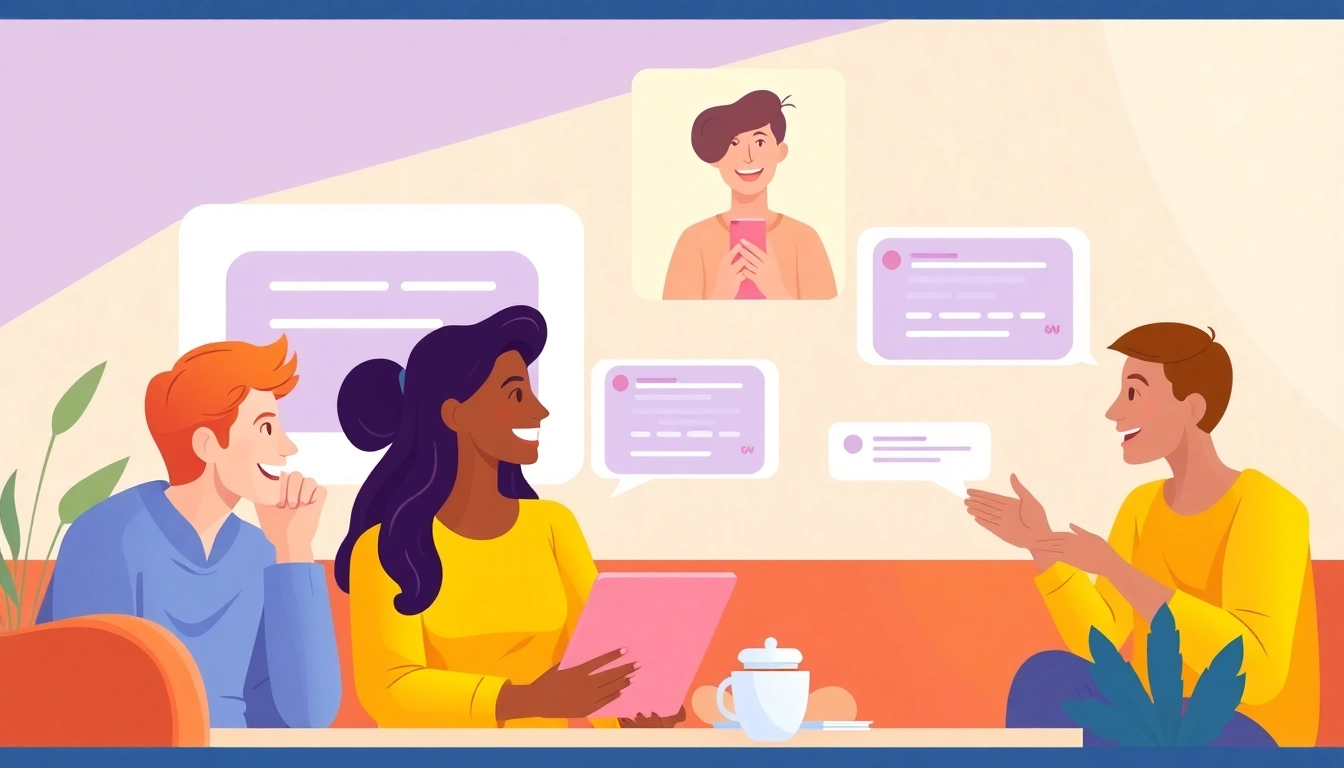Understanding the Dynamics of Relationship Breakup
What Constitutes a Breakup?
A breakup signifies the cessation of a romantic relationship, a transition that can come in many forms, from mutual agreements to unexpected separations. Understanding precisely when a relationship is deemed over often depends on both partners’ perceptions and emotional readiness. Factors such as the length of the relationship, mutual feelings, and external circumstances contribute to how a breakup is defined. A significant breakup might involve shared lives and expectations, creating feelings of loss that can echo through many aspects of life. Explore relationship breakup dynamics to understand personal and partner perspectives.
Signs Your Relationship May Be at Risk
Recognizing the signs of a crumbling relationship is pivotal for timely intervention. Common indicators can include:
- Increased Arguments: Frequent, unresolved conflicts may suggest deep-seated issues.
- Communication Breakdown: A lack of open dialogue can signal emotional disconnection.
- Feeling Unappreciated: Lack of acknowledgment for efforts and care can erode mutual respect.
- Loss of Intimacy: Physical and emotional intimacy often decline significantly during troubled times.
- Future Plans Diverge: When core life goals and values differ greatly, it can complicate the relationship landscape.
The Emotional Stages of a Relationship Breakup
Understanding the emotional journey of a breakup can help individuals navigate their feelings. Typically, this journey includes:
- Shock: Initial disbelief often accompanies the news of a breakup.
- Denial: Refusing to accept the reality can lead to prolonged distress.
- Bargaining: Many attempt to negotiate their way back into the relationship.
- Depression: Feelings of sadness and hopelessness may dominate during this phase.
- Acceptance: Eventually, individuals reach a point of understanding and readiness to move on.
Preparing for the Breakup Conversation
Finding the Right Time and Place
The environment in which you choose to have a breakup conversation significantly impacts its outcome. Opt for a private, neutral location free of interruptions, ensuring both individuals feel secure to express their feelings openly. Timing is also paramount; seeking a peaceful moment rather than during a public event or after an argument can lead to a more constructive conversation.
Effective Communication Strategies
Delivering a breakup message requires sensitivity and honesty. Consider these communication techniques:
- Be Clear and Direct: Avoid ambiguity by stating your intentions straightforwardly.
- Use “I” Statements: Frame your feelings using personal language to avoid placing blame.
- Listen: Allow your partner to express their thoughts and feelings, fostering mutual respect.
- Empathy: Acknowledge the emotional impact this may have on your partner to show understanding.
Anticipating Your Partner’s Reaction
Your partner may exhibit a range of emotions from surprise to anger. Anticipating these reactions can help you remain calm and composed. Planning responses for possible scenarios—defensiveness, sadness, or even relief—will enable you to handle the situation with grace, reducing the likelihood of a heated or hostile confrontation.
Dealing with the Aftermath of a Relationship Breakup
Emotional and Psychological Impacts
After a breakup, individuals often experience a surge of emotions, including grief and anxiety. Recognizing these feelings as normal is essential. Psychological impacts can include:
- Manifestations of anxiety or depression.
- Difficulty concentrating or making decisions.
- Social withdrawal or isolation.
- Physical symptoms like changes in appetite or sleep disturbances.
Finding Support from Friends and Family
Lean on support systems during this challenging time. Friends and family provide emotional refuge, offer practical help, and can aid in processing feelings. Openly discussing your emotions with trusted loved ones can alleviate feelings of isolation and foster healing.
Tips for Self-Care during the Healing Process
Taking care of oneself post-breakup is crucial. Engaging in self-care can enhance emotional resilience. Consider:
- Establishing Routines: Regular schedules provide a level of normalcy amidst turmoil.
- Engaging in Hobbies: Pursuing interests can foster joy and distract from negative thoughts.
- Exercise: Physical activity releases endorphins, improving overall mood and well-being.
- Mindfulness Practices: Techniques like meditation can aid emotional regulation.
Steps to Move Forward after a Breakup
Setting Realistic Expectations for Healing
Understand that healing is not linear and takes time. Setting realistic expectations contributes to mental well-being and prevents additional distress. Allow yourself to grieve but also set a timeline for seeking positivity and growth. Regularly evaluate your feelings to determine if you’re ready to move on.
Embracing Change and New Beginnings
Transitioning into the post-breakup stage is an opportunity for renewal. Embrace the changes that come with single life. This phase can be empowering as it allows self-discovery and growth. Establishing personal goals, whether related to career, health, or hobbies, can redirect focus toward future possibilities.
Learning from Your Previous Relationship
Every relationship teaches valuable lessons about oneself and others. Reflect on positive and negative aspects of the past relationship to foster growth. Identify patterns in behavior and preferences, and consider what attributes are essential for future partners. This introspection can enhance future relationship choices.
Resources and Professional Help for Breakup Recovery
When to Seek Professional Counseling
Sometimes, the emotional toll of a breakup can be overwhelming. Recognizing when to seek professional help is crucial. Signs may include prolonged feelings of sadness, unresolved anger, or difficulty returning to everyday activities. Professional therapists can provide tools to navigate emotions and develop coping strategies.
Recommended Books and Online Resources
Educating oneself can facilitate healing and understanding. Various books and online courses provide insights and coping mechanisms:
- “How to Heal a Broken Heart in 30 Days” by Howard Bronson: This guide offers practical exercises and advice for rebuilding.
- Online platforms like BetterHelp: Connect with licensed professionals for support.
- “Moving On: A Proven Plan for Letting Go of the Past and Living for the Future” by John Townsen: This book offers strategies for overcoming emotional hurdles.
Support Groups and Community Resources
Many communities offer support groups aimed at those recovering from breakups or divorce. Engaging with others facing similar circumstances can provide comfort and a sense of belonging. Additionally, online forums can facilitate discussions and encouragement among individuals navigating breakups.



